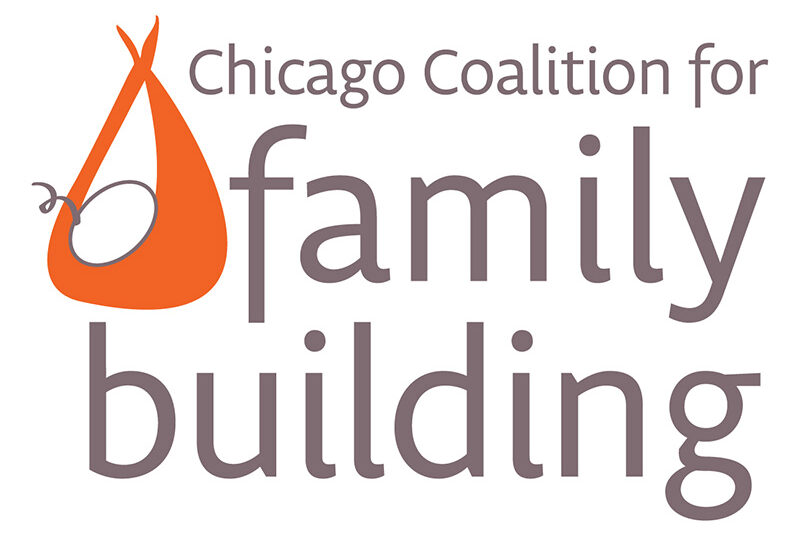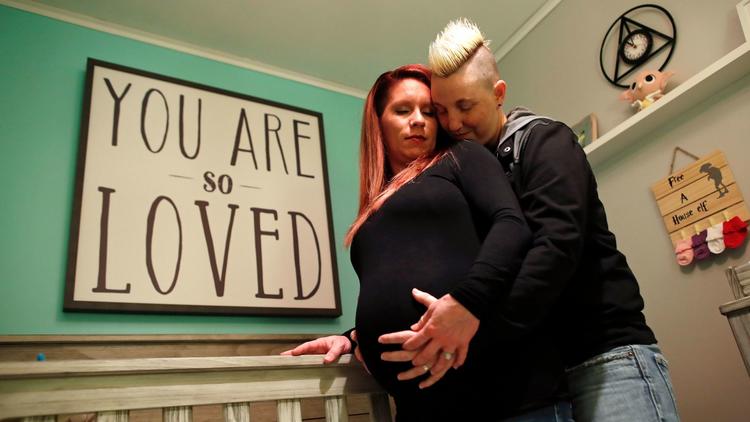News Coverage
‘It can be heart-wrenching’: Family Building Grants help couples with fertility issues build families
Chicago Tribune
By Christen A. Johnson
November 20, 2017
After three failed intrauterine inseminations (IUI), Ashley Versage’s nurse called sharing news that she was “definitely pregnant.”
Hoping to surprise her wife, Kate, she ran to Target and got a digital pregnancy test and two shirts for their dogs that read, “About to be a Big Brother.”
“The dogs always greet me when I get home from work,” said Kate Versage. “I read their shirts, turned the corner into our kitchen and she handed me the test that says ‘pregnant’ with a bow on it.” They sat in their kitchen for a half-hour and cried while the dogs jumped all over them.
Approximately 39 weeks later, the couple awaits the arrival of their first child, a baby girl.
“There’s no way we’d be here if it wasn’t for the Family Building Grant,” said Kate Versage.
The Versages received the Financial Assistance Grant from The Coalition for Family Building (formerly the Kevin J. Lederer Life Foundation), a nonprofit organization that helps alleviate the mental, physical and financial distress of infertility.
The foundation offers two Family Building Grants: Financial Assistance, which gives a maximum of $10,000 to those who need help with third-party reproduction or medication costs, and IVF Cycle, a donation of one full in vitro fertilization (IVF) procedure.
To qualify for a Family Building Grant, individuals must have an annual household income of less than $150,000, among other requirements.
Dr. Eve Feinberg, founder and executive director of the Coalition for Family Building, created the organization to provide a combination of pro bono care and financial aid.
“Up until last summer, the World Health Organization did not recognize infertility as a legitimate disease,” said Feinberg. “When that happens, insurance companies don’t provide universal coverage.”
One attempt at IVF, plus medical fees, costs roughly $12,000, says Feinberg. Individuals who receive the IVF grant get all the ultrasounds, bloodwork, anesthesia, embryo culture, embryo transfer and personnel fees included in their grant.
Fertility rates in the United States:
Here are some statistics on fertility rates in the United States. (July 17, 2017) (Sign up for our free video newsletter here)
“The grant doesn’t include the cost of medications,” said Feinberg, “which can be anywhere from $3,000 to $7,000.” The IVF grant also doesn’t cover freezing and storing leftover embryos, which amounts to roughly $2,000 combined.
The Versages received a Financial Assistance Grant to purchase five vials of sperm, which can cost up to $1,000 each, according to Feinberg, who is also a reproductive endocrinologist and fertility specialist at Northwestern University Feinberg School of Medicine and who was the Versages’ doctor.
“Because insurance doesn’t cover sperm, it wasn’t going to be an easy cost for us,” said Kate Versage. “We knew we couldn’t begin our journey of having a child without additional help.”
The Versages went through the application process, received the news of being awarded the grant, then the emotional “roller coaster ride” began.
“If you get to inseminate, you have to wait two weeks to take a pregnancy test,” said Ashley Versage. “It’s the worst.” They went through three inseminations before the fourth try stuck.
“Each time a vial didn’t work,” said Kate Versage, “we knew our chances were getting slim. We didn’t know if we would ever get another Family Building Grant. It added stress to being on vial four.”
The couple says Feinberg and her team were “truly caring” and empathetic about the emotional piece of the process.
“Whether you’re going through IUI or IVF, it can be so heart-wrenching and difficult,” said Ashley Versage. “But you have people like Dr. Feinberg who are there for you.”
“We really felt like they were invested in our story,” added Kate Versage.
This year, the Coalition for Family Building received 87 applications and gave out 15 grants. The number of awarded grants depends on how many practices agree to donate IVF cycles and how much money is raised.
Illinois, Missouri, Indiana and Wisconsin residents can apply for a Family Building Grant. Applications open online in April, during National Infertility Awareness Week, with six weeks to complete.
A recommendation from a treating physician and a personal essay are required components of the applications. Applicants hear back two to three months after submission.
“My eventual goal is to give a grant to everyone who needs it,” said Feinberg. “We want to help build families where they would not otherwise exist.
Click here to read original story

